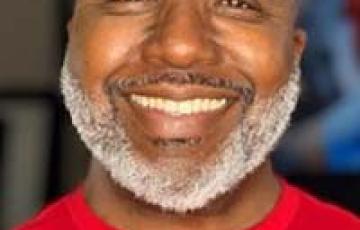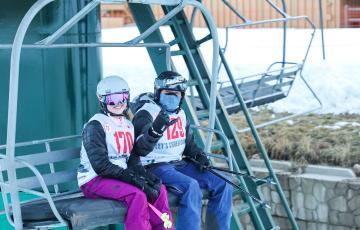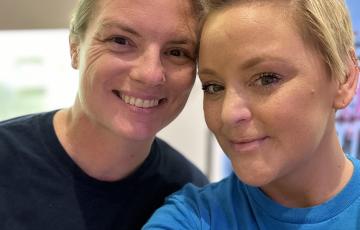Search Results
The Affordable Care Act (ACA)
The Affordable Care Act’s Patient ProtectionsThe Affordable Care Act requires health insurance plans sold through www.healthcare.gov and its state-based marketplaces to comply with a number of requirements. Many of these – including the ones described below – are meant to ensure that patients have access to meaningful health insurance coverage. It’s important to be aware that some health plans, available today through non-governmental sites, may not include these patient protections.
Related Diseases
Myeloma shares some similar features and symptoms with other blood disorders, including:
Treatment
There is not one treatment that is effective for all myelofibrosis (MF) patients. Patients have varying symptoms and circumstances that require different treatment options. Some MF patients remain symptom-free for many years and do not require immediate treatment. All MF patients, however, need to be closely monitored.

Jonathan
I’ll start from the beginning.
In 2012, I was diagnosed with testicular cancer. I had surgery to remove the mixed germ cell tumor and then was on the road to recovery. My lymph nodes were larger than they should have been, so I opted to err on the side of caution and had a lymph node dissection to have them removed. That was an invasive surgery that kept me out of work and from doing any physical activity for over six months. Once I healed up, I went back to work as a full-time police officer in Worcester, MA.

Tim
I knew multiple myeloma (MM) was a blood cancer. After all, my mom was diagnosed with myeloma at 62 years old in 2005. It’s extremely rare that I should also be diagnosed in 2021, but it happened. There’s no strong data that shows that it’s hereditary at this point. But more doctors are seeing family members being diagnosed. It's also becoming one of the most diagnosed cancers among African Americans.

Harjeet
In May 2018, I moved to Edmonton from India with my husband hoping for a new career, a new life, and to start a family. Things were all right at first. Everything was going smoothly; I was living my normal life, but life had different plans.
In May 2019, I began experiencing high fevers with no other symptoms. Weeks passed, and I found myself in the emergency room numerous times. I was told that it was just a normal viral fever and took Tylenol to relieve it.

Paul
Thank you on behalf of the Freeman Wilner Family for this Honored Hero Award in memory of my father, Dr. Freeman Wilner, he was a hero to many.

Addison
Florida is my happy place. It's where I've vacationed for over three decades. And when my husband and I had kids, it became our family's happy place too. Schedules are forbidden on vacation. We tell time by the sun as we sit on the beach with our feet in the sand, watching the tide roll in and out. While on vacation, we celebrate birthdays ― and they're done up big ― because that's the only way that we know how to celebrate birthdays ― BIG.

Laura
When you hear the words, “Your child has cancer,” your whole world stops, without permission, as you and your child are thrust onto the rollercoaster ride of pediatric cancer, desperate to get off with your sanity and your child’s life intact. Those months, or as was the case for us, years in treatment, are relentless, fraught with confusion and uncertainty as you desperately and constantly search for answers. For direction. For hope.
Our History
The Leukemia & Lymphoma Society (LLS) was born out of a family's grief following the death of their teenage son. Robert "Robbie" Roesler de Villiers, son of a well-to-do New York family, was only 16 when he quickly succumbed to leukemia in 1944. Five years later, frustrated by the lack of effective treatments for what was then considered a hopeless disease, parents Rudolph and Antoinette de Villiers started a fundraising and education organization in their son's name.
Fundraise for LLS
Fundraise for LLS
Make an impact in the fight to cure cancer.
The Leukemia & Lymphoma Society® (LLS) is a global leader in the fight against cancer. LLS does more to advance science and support patients than any other cancer organization.
Join the fight against cancer by participating in one of our fundraising events: Light The Night, Team In Training, Big Climb, Visionaries of The Year, Student Visionaries of The Year, Ski, Scenic Shore, USA BMX, and more.
Graft-Versus-Host Disease
Graft-versus-host disease (GVHD) is a potentially serious complication of allogeneic stem cell transplantation and reduced-intensity allogeneic stem cell transplantation. In this treatment, a patient’s own damaged or diseased blood-forming stem cells are destroyed. Then they are replaced with healthy stem cells from a donor.
Insurance Coverage
Health insurance helps pay for costly medical treatment and can protect you and your family from financial hardship. Some people have private health insurance coverage either through an employer (often called a group plan) or through an individual policy they've purchased. Even if you have coverage, however, certain treatments and charges may not be covered or paid in full. And there's the potentially overwhelming task of filing or appealing health insurance claims, especially when you're undergoing cancer treatment.
Diagnosis
While certain signs and symptoms may indicate that a person has PV, a series of tests are needed to confirm the diagnosis. It is important to have an accurate diagnosis, as it helps the doctor to:
- Estimate how the disease will progress
- Determine the appropriate treatment
Evaluation of an individual with suspected PV should start with a detailed medical history and a physical examination.
The medical history should include information about the patient’s:

Mike
My personal story with blood cancer started in 2020 but nobody really knew how long it was brewing. A day came when back spasms started raging and my Primary Care Physician (PCP) sent me to physical therapy (PT). It didn’t take more than 1 visit to PT to know that was a bust and finally my PCP sent me to the Hematologist. This is where my blood cancer story becomes reality, in no more than 5 minutes, the Hematologist sent me directly to the Huntsman Cancer Institute.

Samuel
On June 21, 2019, my sweet, goofy, little boy, Samuel, turned 3 years old, and we had a big celebration. We threw Samuel a beautiful birthday party surrounded by family and friends at a local farm. The kids played, fed the farm animals, went on pony and tractor rides, and ate pizza and cake. It was a day Samuel still remembers and talks about. He has always been so bright, even as a baby, saying words like “tickle” at 10 months old.

Gregg
The date was May 15, 2015, in the local office of the hematologist/oncologist and I was given this message after the results of my bone marrow biopsy taken a week earlier.
Diagnosis
An accurate diagnosis is one of the most important aspects of a person’s medical care. Obtaining a precise diagnosis will help the doctor to:
- Estimate how the disease will progress
- Determine the appropriate treatment
The results of blood tests that accompany periodic medical examinations may indicate the need for further evaluation for myeloma. These include an elevated protein level, anemia and abnormalities in kidney function or calcium levels.
Supportive Care and Disease Complications
Supportive (palliative) care for myeloma helps manage the complications of the disease and the adverse side effects of the drugs used for treatment, including:
Diagnosis
While certain signs and symptoms may indicate that a person has MF, a series of tests are needed to confirm the diagnosis. It is important to have an accurate diagnosis, as it helps the doctor to:
- Estimate how the disease will progress
- Determine the appropriate treatment
Some of these tests may be repeated both during and after treatment to evaluate the effectiveness of treatment.

Manuel
Part 1: A Survivor’s Mission
Ten years ago, my life was forever changed by three words, “You have cancer.” Those words shocked my invincible-minded adolescence into reality. I was a 15-year-old sophomore in high school, and I was terrified beyond comprehension. I knew nothing about cancer, chemotherapy, or what was about to happen to me. All I knew was that my life was involuntarily put on hold as I engaged in war with an enemy I never saw coming. With my entire world turned upside down and displaced within the confines of DuPont Hospital, life seemed utterly hopeless.

Stephanie and Amy
Stephanie: My journey with blood cancer began long before my diagnosis. In 2006, my world was shattered when my mom, just 52 years old, was diagnosed with acute myeloid leukemia (AML). She was quickly isolated in a specialized hospital, enduring grueling rounds of chemotherapy. I was about to start nursing school and desperately tried to educate myself on her illness, knowing deep down that the prognosis was grim. They mentioned a bone marrow transplant, but she never made it that far. A fungal pneumonia took her from us in December 2006.
Sexual Health and Intimacy
These webpages cover a range of sensitive topics related to intercourse, sexual health, intimacy and cancer. Although not always discussed, sexual health and intimacy are an important part of your wellbeing, even after a cancer diagnosis. Please note: If you have experienced any type of sexual trauma, we recommend that you seek support and help from a trusted healthcare professional before reading further.

Hudson
Hudson entered the world on March 31, 2017. This is the day my heart left my own chest and was beating outside of my body. My whole world was immediately consumed by this little, perfect bundle of cuteness. As far as cancer risk goes, he didn’t really have any. He had a healthy infancy and toddlerhood, barely needing a Band-Aid. This is the case for so many children. In November of 2018, Hudson became a big brother to Violet. I can remember being in the studio for Violet’s newborn photos when the photographer had Hudson lay beside Violet.
